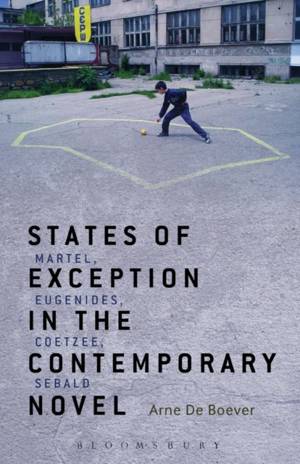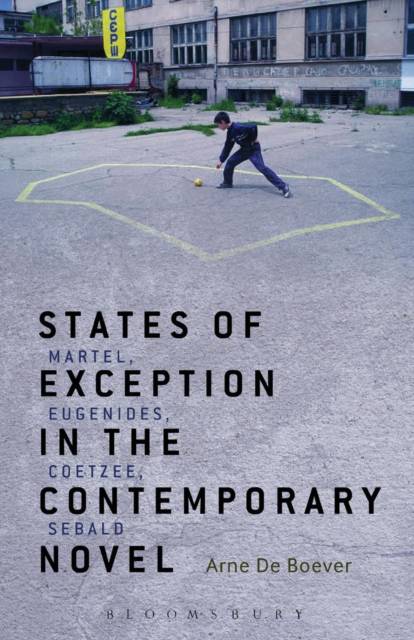
En raison d'une grêve chez bpost, votre commande pourrait être retardée. Vous avez besoin d’un livre rapidement ? Nos magasins vous accueillent à bras ouverts !
- Retrait gratuit dans votre magasin Club
- 7.000.000 titres dans notre catalogue
- Payer en toute sécurité
- Toujours un magasin près de chez vous
En raison de la grêve chez bpost, votre commande pourrait être retardée. Vous avez besoin d’un livre rapidement ? Nos magasins vous accueillent à bras ouverts !
- Retrait gratuit dans votre magasin Club
- 7.000.0000 titres dans notre catalogue
- Payer en toute sécurité
- Toujours un magasin près de chez vous
States of Exception in the Contemporary Novel
Martel, Eugenides, Coetzee, Sebald
Arne de Boever
Livre broché | Anglais
51,45 €
+ 102 points
Format
Description
In the aftermath of the September 11 terror attacks, the political situation in both the United States and abroad has often been described as a "state of exception" an emergency situation in which the normal rule of law is suspended. In such a situation, the need for good decisions is felt ever more strongly. This book investigates the aesthetics, ethics, and politics of various decisions represented in novels published around 9/11: Martel's Life of Pi, Eugenides' Middlesex, Coetzee's Disgrace, and Sebald's Austerlitz.
De Boever's readings of the novels revolve around what he calls the 'aesthetic decision.' Which aesthetics do the characters and narrators in the novels adopt in a situation of crisis? How do these aesthetic decisions relate to the ethical and political decisions represented in the novels? What can they reveal about real-life ethical and political decisions? This book uncovers the politics of allegory, autobiography, focalization, and montage in today's planetary state of exception.Spécifications
Parties prenantes
- Auteur(s) :
- Editeur:
Contenu
- Nombre de pages :
- 176
- Langue:
- Anglais
Caractéristiques
- EAN:
- 9781623569525
- Date de parution :
- 21-11-13
- Format:
- Livre broché
- Format numérique:
- Trade paperback (VS)
- Dimensions :
- 140 mm x 216 mm
- Poids :
- 208 g

Les avis
Nous publions uniquement les avis qui respectent les conditions requises. Consultez nos conditions pour les avis.






